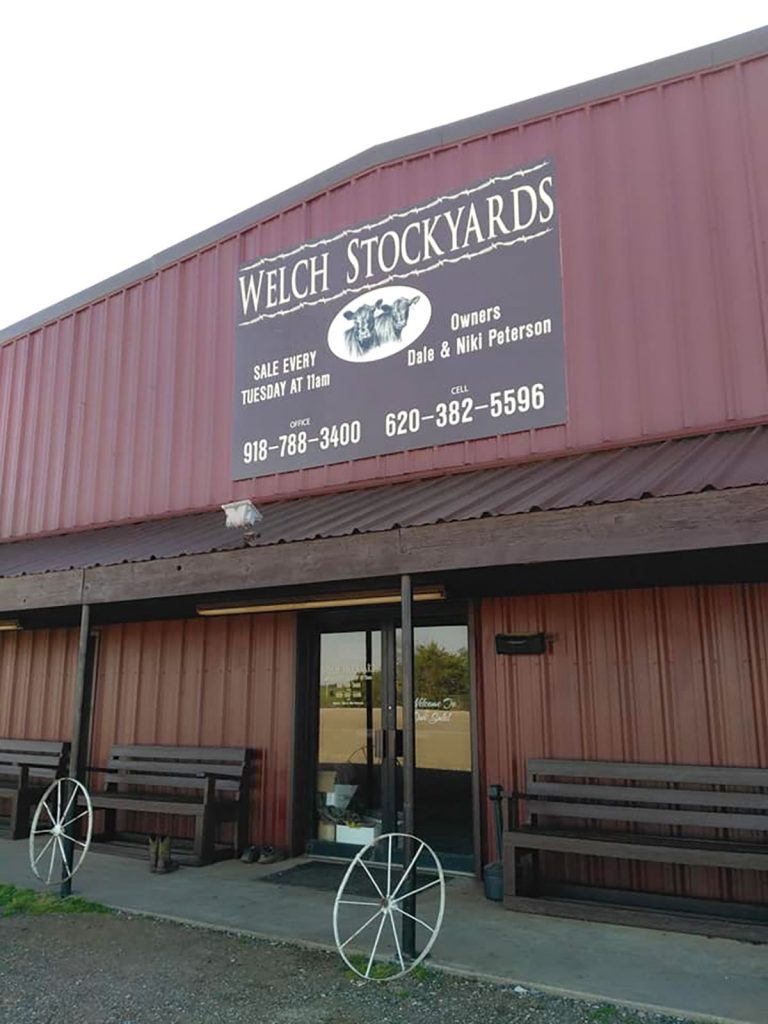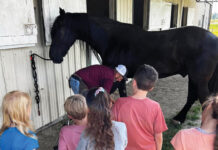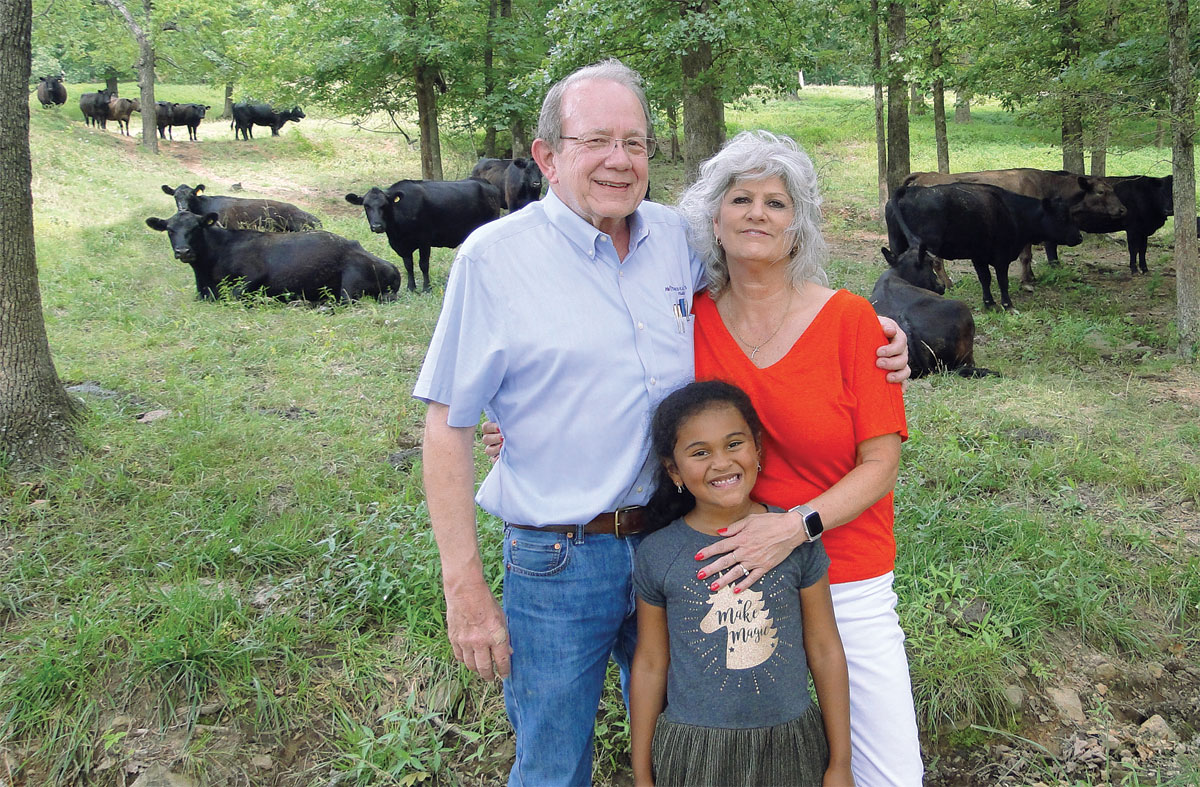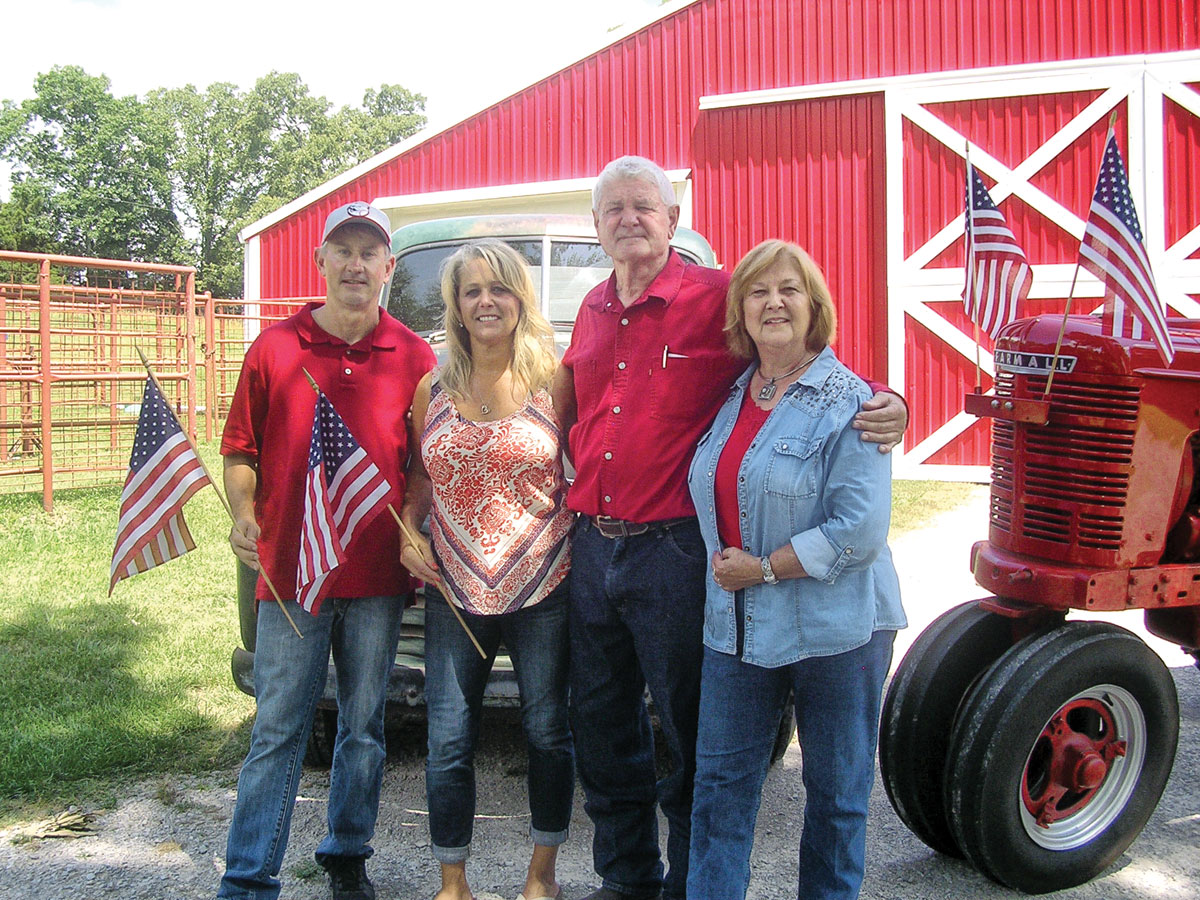
Dale and Niki Peterson have many years of experience in the livestock market business
More than five years ago, Dale and Niki Peterson purchased Welch Stockyards in Welch, Okla.
The sale barn began operations in 1980 and has had at least six owners in the succeeding years. According to Dale, in the livestock market business the most important part of establishing a new business is building up a reputation for fairness and reliability. He believes the auction business is trust-based and will only grow when his words and values are proven. Therefore, word-of-mouth advertising is the best and most reliable form because you only tell your friends what you truly believe.
“We started out with only 20,000 head annually,” Dale said. “But the last 18 months have been good and we are now up to 75,000 head per year. The good Lord has had a lot to do with our success and we begin every sale with a prayer from a local preacher in recognition of His gifts.”
An important part of their success is Clint Cornelius from Prescott, Ark. Clint serves as a field man and gathering point for cattle from smaller, southern Arkansas producers. When a trailer load has been filled from 10 to 12 sellers with a total weight of 45,000 pounds, Dale drives to Prescott to pick up the cattle for the next auction.
Dale was raised in the sale barn business and remembers being only 6 when he helped push baby calves into pre-auction holding pens. Dale also met his wife through livestock auctions because she was a secretary at another facility, a role familiar to her since starting as soon as she graduated high school.
The relationship proved excellent on both personal and business levels. The couple has a blended family with four children: sons Justin (24), Tuf (20) and Jacob (19), with daughter Delaney (13). In terms of the business, Niki handles the office and books while Dale manages the hands-on side, as well as scheduling.
Though Welch Stockyards holds a bimonthly sale of bred females, the weekly sales are held each Tuesday beginning at 9:30 a.m. The sale begins with stocker calves followed by feeder cattle and ending with weigh cattle.
“Purchasing the livestock auction facility made sense because I’ve always been in the business in addition to raising cattle,” Dale explained. “It came up for sale, so we bought it. Because I work the cattle business from birth to harvest, I know and understand the needs of my customers. That knowledge allows me to present each customer’s stock to the best advantage while providing the buyers accurate information.”
Timely and dependable customer service is essential. Ranchers begin delivering cattle for the next sale as soon as the Tuesday auction is over, with Dale accommodating them by charging a per day fee for feed and care. Another important service is having veterinarian Tyler Dillon from Cheepeta, Kan., on-site during sales with ranchers and buyers who have many requests for various services, including verifying ages, preg checks and vaccinations. Local resident Trey Dodson, 23, is the auctioneer. He began auctioneering when he was only 19 after being taught by his father. Trey handles live video coverage while auctioning, which allows buyers to buy online with ease. Trey is notified of an online bid on a computer directly in front of him. The real-time delay is only two seconds which he handles easily as he proceeds with selling the lot in the ring.
The only full-time employees are Dale and Niki. Sale days are busy with 35 part-time employees making sure everything runs smoothly. Some start on Monday both in the yards and in Niki’s office which has a total of six ladies on Tuesday with three of them beginning Monday.
“Our staff is outstanding and an invaluable part of our growth,” Dale explained.
Another income stream comes from stockers and feeders. Dale partners with his sons on these cattle as a way of helping them get started.
“My boys love competing in ranch rodeos and have done well, but one of my goals is to help them down the road with a little better buffer than I had,” Dale commented.
Additionally, Dale and his brother Scott have a substantial cattle ranch in Kansas. Scott and ranch manager Roy Wessel coordinate the busy operation. The ranch is a cow/calf operation with commercial Angus cows and a registered Charolais bull. They believe in the Angus/Charolais combination provides hybrid vigor and calves that are typically 75 to 100 pounds heavier when harvested. Roy developed a custom ration based upon crops the ranch produces. Weaned calves are fed in their private feedlot until sold for processing. The rest of the herd is grass and hay fed but receives supplementary grain during the winter. Free choice, lose mineral that sometimes contains an additive for flies during the summer is also available year-round. Calves are born both in the spring and the fall with the ranch allowing a cow to skip one cycle before she is culled.
“We may have a lot of irons in the fire, but we’ve also had a lot of practice with the balancing act and have a system that works for us,” Dale said.







